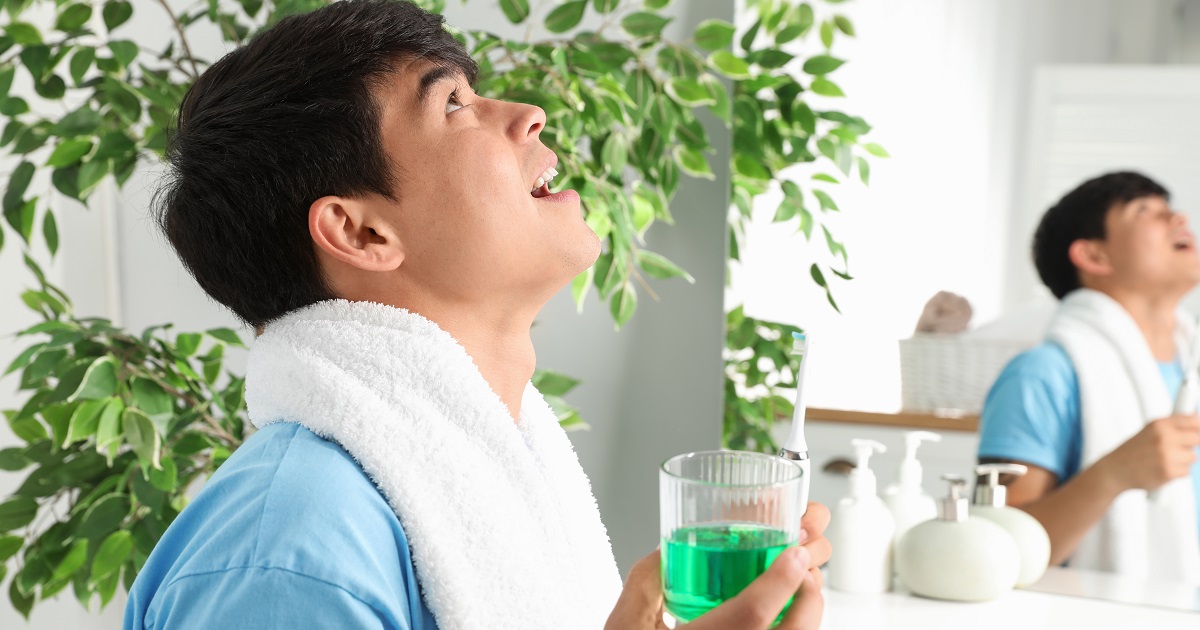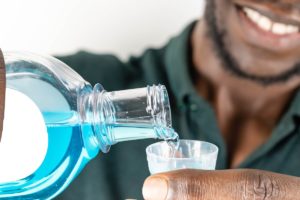
Take it from a dentist: Don’t rely on mouthwash to protect you from COVID-19
Keep yourself and loved ones safe.
If you’ve been to the dentist recently, your dentist may have asked you – for safety’s sake – to rinse with mouthwash before opening wide for your examination.
But, can it really be so simple to prevent the spread of COVID-19 as rinsing with mouthwash? Does this mean you can rinse your mouth and ignore the masking and physical distancing guidelines?
Have we found the solution to the pandemic?
Mouthwash is not the solution
According to Mary Joyce Gomez, DDS, the director of the dental residency program at OSF HealthCare Saint Francis Medical Center in Peoria, the answer is no. No, no, no.
There is no scientific research or proof that mouthwash has an impact on COVID-19, Dr. Gomez said. Dentists use a chlorhexidine mouthwash and other antimicrobial mixtures to try to decrease the amount of virus in a patient’s mouth. In theory, it’s a fairly risk-free, or low-risk, way to reduce the amount of COVD-19 in someone’s mouth for a short time, but there is no proof that it works in reality.
Basically, using the mouthwash causes a patient no harm, while it could – in theory – help reduce the risk of spreading COVID-19 to the dental care staff.
“It might help and it doesn’t cause any harm, so it’s worth giving it a shot,” Dr. Gomez said.
One thing Dr. Gomez is certain of, though, when it comes to the topic: Nobody should think rinsing with mouthwash will protect them from catching or spreading the coronavirus.
No scientific proof
 Media coverage in late October seemed to suggest that mouthwash could play a big role in helping to prevent the spread of COVID-19. However, according to this article by the New York Times, that coverage was based on a study that showed mouthwash could disable a coronavirus that causes colds – not the one that causes COVID-19 – in a laboratory.
Media coverage in late October seemed to suggest that mouthwash could play a big role in helping to prevent the spread of COVID-19. However, according to this article by the New York Times, that coverage was based on a study that showed mouthwash could disable a coronavirus that causes colds – not the one that causes COVID-19 – in a laboratory.
But that article makes clear that even if mouthwash could wipe out the COVID-19 inside someone’s mouth, a person’s infected cells would continue producing more virus. So any decrease in COVID-19 inside someone’s mouth would be very short lived, if it occurs at all.
So what does that all mean?
This all means that you need to keep following the proper safety precautions, including wearing a mask and practicing physical distancing, washing your hands frequently and avoiding touching your face.
There is no scientific evidence that mouthwash will end the pandemic.